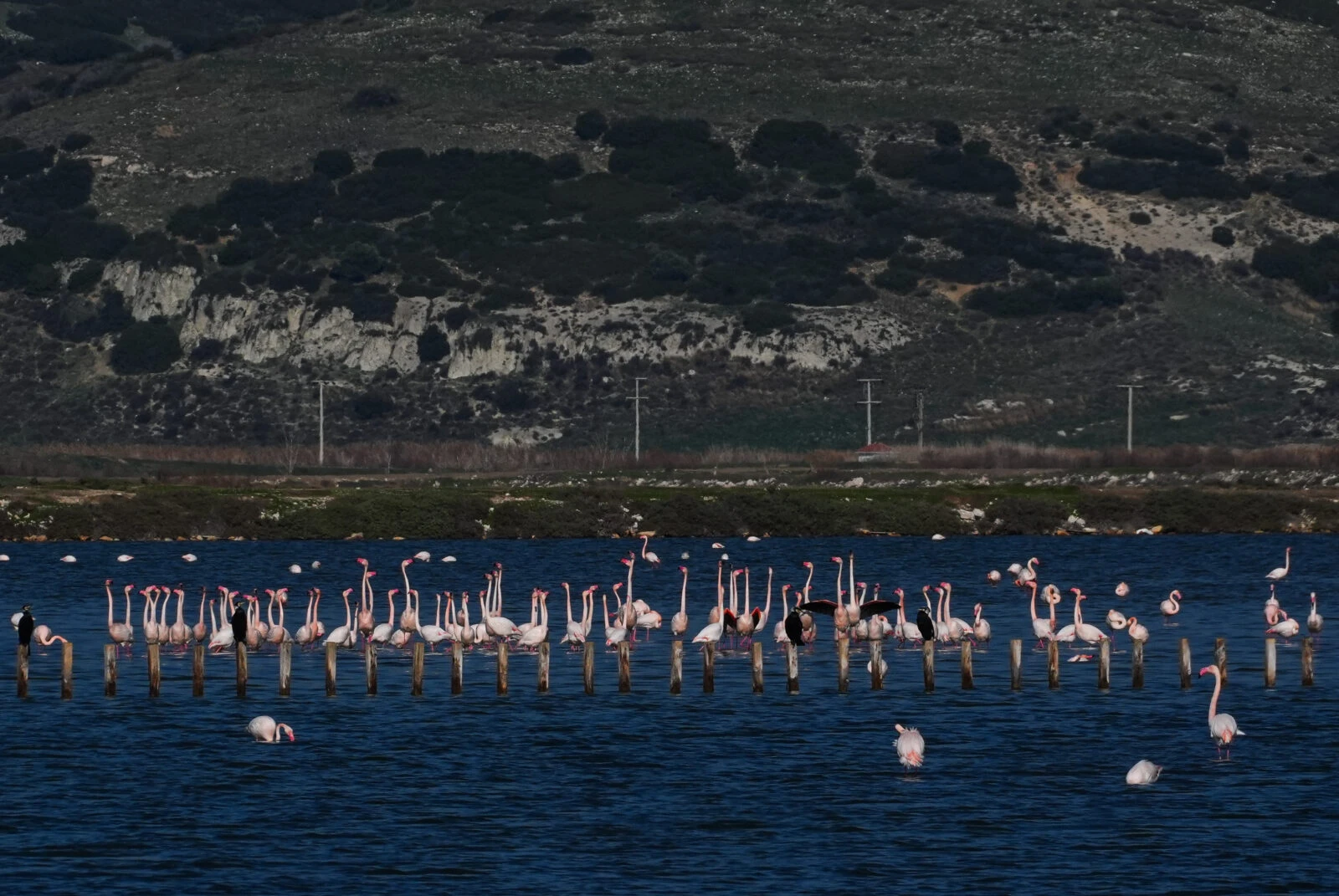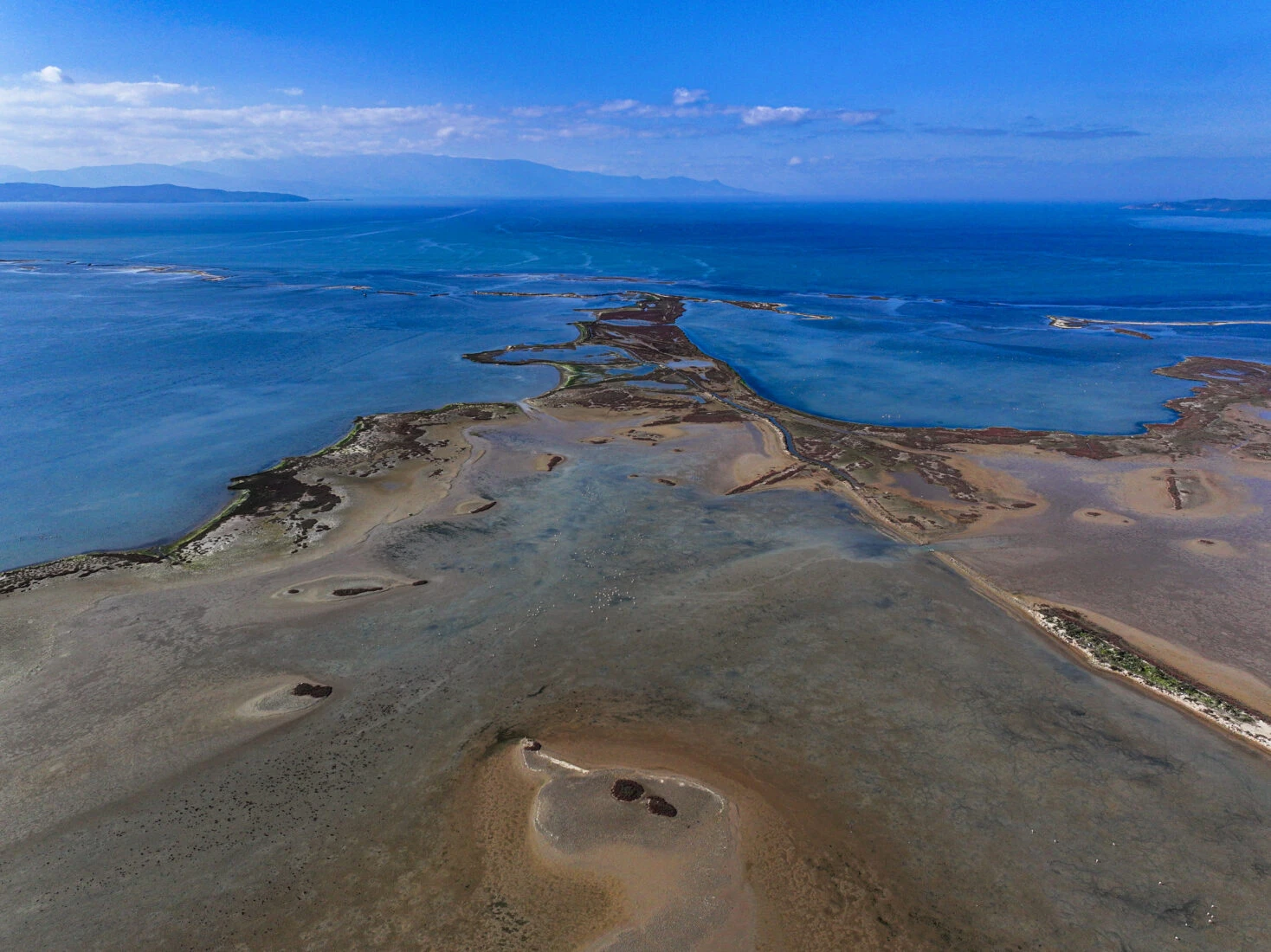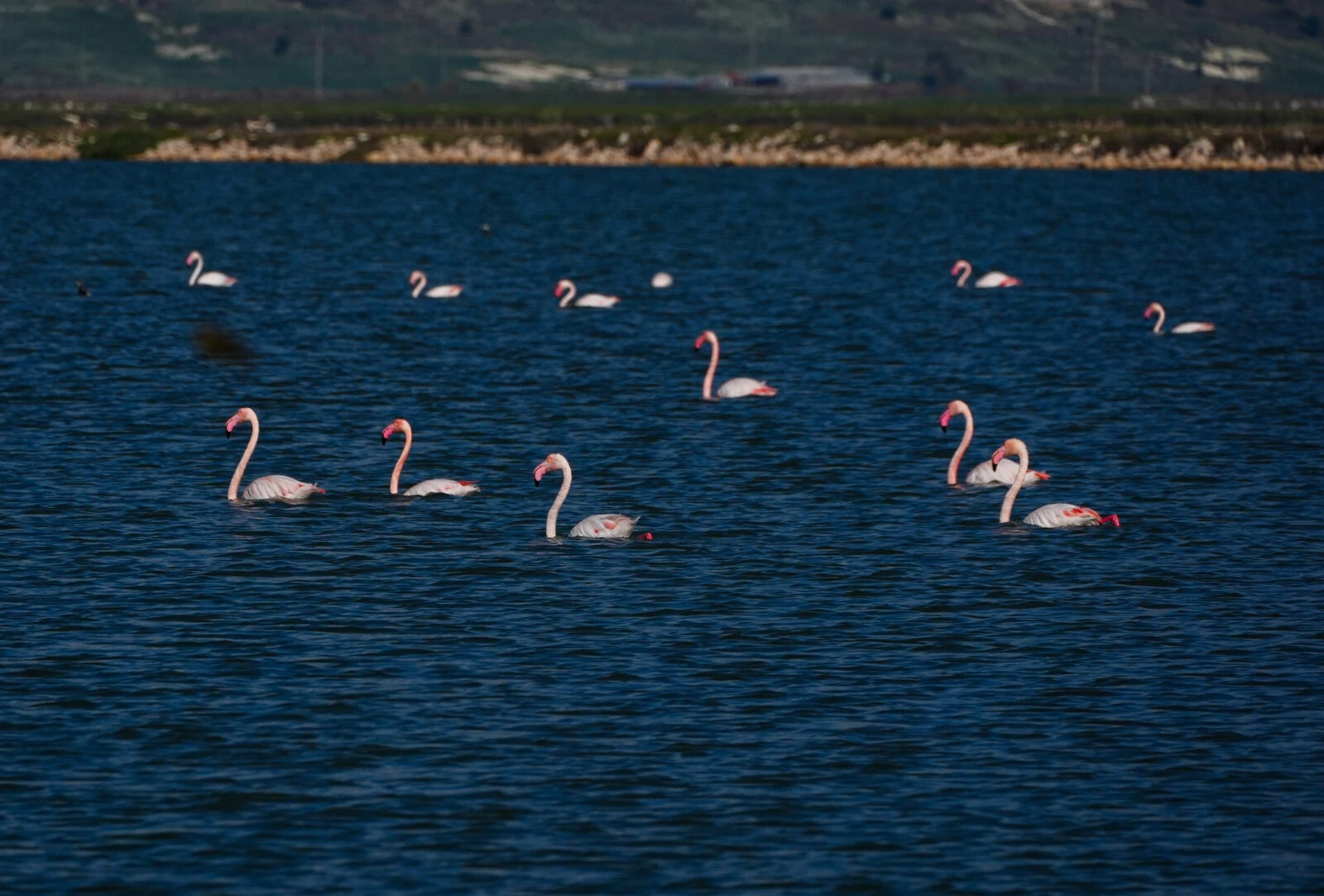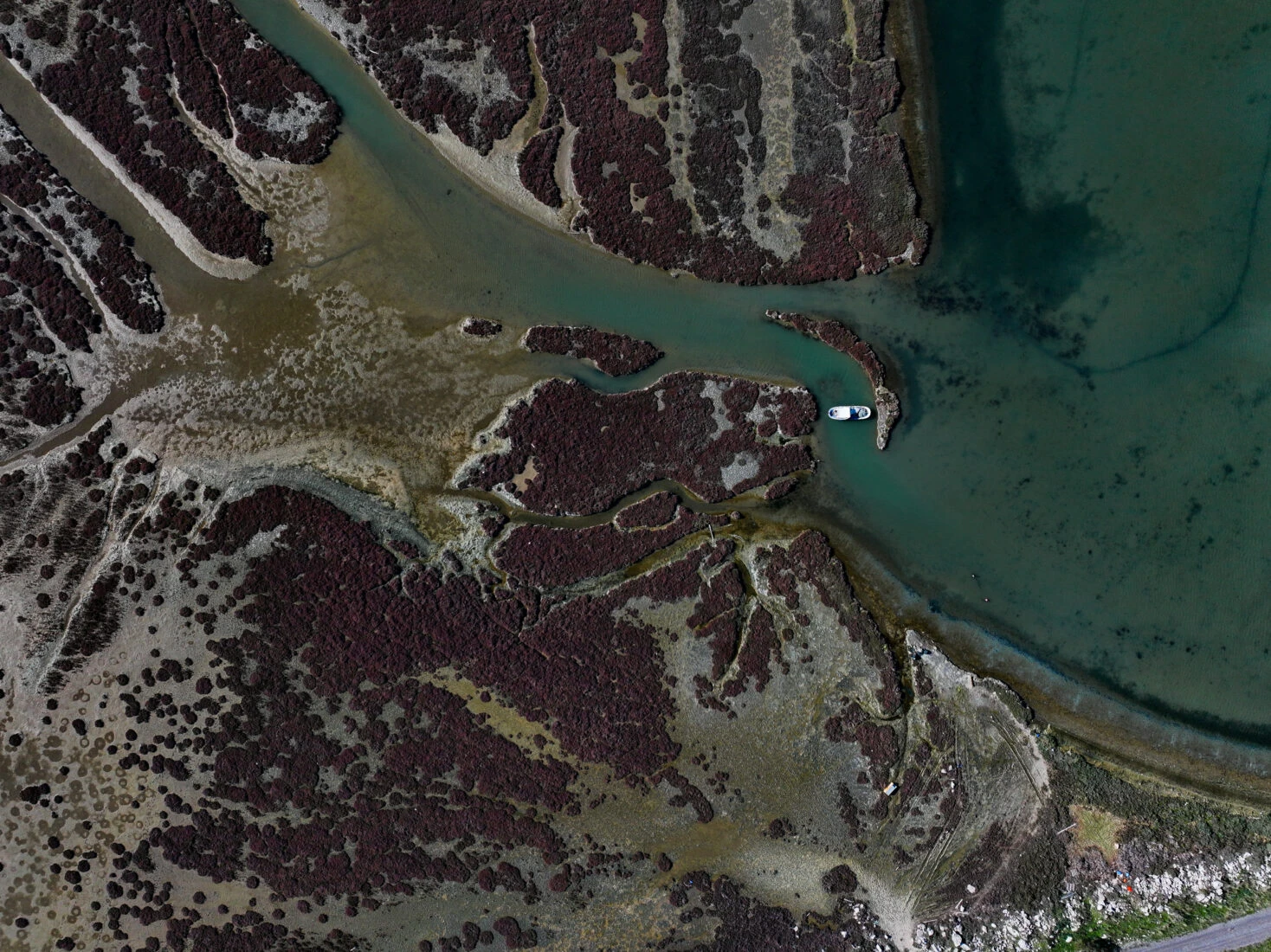Türkiye’s Gediz Delta faces drought, pollution threats
 An aerial view of the Gediz Delta in Izmir, Türkiye, showing the vital wetland under threat from climate change, drought, and pollution on January 28, 2025. This 400 km² area is a protected Ramsar site, home to many bird species, including flamingos. (AA Photo)
An aerial view of the Gediz Delta in Izmir, Türkiye, showing the vital wetland under threat from climate change, drought, and pollution on January 28, 2025. This 400 km² area is a protected Ramsar site, home to many bird species, including flamingos. (AA Photo)
One of Türkiye’s most significant wetlands, the Gediz Delta, is facing severe threats from climate change and pollution, raising concerns about its long-term survival.
Originating from Murat Mountain in Kutahya, the 401-kilometer-long (249.1-mile) Gediz River flows through Usak, Manisa, and Izmir before reaching the Izmir Bay, creating a vast 400-square-kilometer delta.
Recognized as a Natural Protected Area, the delta is among the 14 internationally significant wetlands in Türkiye protected under the Ramsar Convention.

Home to a diverse range of species, including large populations of flamingos, the Gediz Delta is one of the country’s largest coastal wetlands, providing critical habitats for various birds and aquatic life.
Severe drought, saltwater intrusion threaten biodiversity
Professor Halil Sen, Vice Dean of Ege University’s Faculty of Fisheries, emphasized that the delta plays a crucial role in both agricultural irrigation and biodiversity conservation. However, rising temperatures, stronger winds, and decreasing rainfall—exacerbated by climate change—are driving saltwater further inland, disrupting the delicate balance of this ecosystem.

“The biggest threat to the delta is drought,” Prof. Sen warned. “There is a severe shortage of fresh water, and the degradation of embankments is allowing seawater to penetrate deeper inland, leading to microclimatic shifts. Strengthening these embankments and ensuring a consistent supply of fresh water is crucial for the delta’s survival. The Local Wetland Commission under the governor’s office is working on this issue, but we are still waiting for concrete action.”
Sen also pointed out that the drying of marshes and wetlands directly affects bird populations, as many species nest within the reeds. “Without sufficient water, their breeding cycles and migration patterns are disrupted, posing a serious risk to the ecosystem,” he added.

Industrial pollution worsening the crisis in Gediz Delta
Pollution further compounds the delta’s woes, as the Gediz River carries industrial waste and contaminants from upstream regions.
“The river picks up pollutants along its course, especially from industrial zones, and by the time it reaches the sea, it deposits both pollution and sediment, negatively affecting water circulation deep into the delta,” Sen explained.

Sustainable conservation is the key
Highlighting the importance of wetlands in global biodiversity, Sen stressed the need for proactive conservation measures. “Around 40% of the world’s wildlife depends on wetlands. If we want to pass this ecosystem on to future generations, we must take immediate action,” he said.
However, Sen cautioned against the misconception that conservation means leaving wetlands untouched. “Looking at similar sites worldwide, we see that controlled and sustainable use—such as fish farming, salt extraction, and recreational areas—can help maintain these ecosystems. If left entirely to nature, wetlands will eventually degrade, much like any living organism. Strategic interventions are essential for long-term sustainability,” he concluded.



